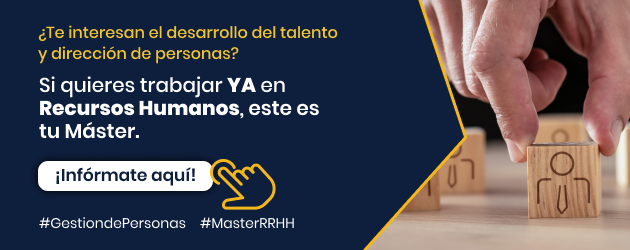New Technologies
In today's digital age, employee training in organizations is undergoing a significant transformation thanks to the integration of new technologies. These emerging technologies, such as artificial intelligence, virtual and augmented reality, and metaverse, are revolutionizing the way employees are trained and develop professionally.
Training customization is possible thanks to new technologies and the evolution of online platforms, adapting each content to the individual needs of each employee or area within the company, thus enhancing their capabilities and competencies. Furthermore, technology has broken down geographical and cultural barriers, allowing employees from different parts of the world to connect and collaborate in a global learning and collaborative environment.
The role of organizations in this new training paradigm must shift toward a more person-centered/employee-centered approach, providing technological tools and resources that allow them to effectively acquire new skills and knowledge. Employees no longer need to acquire only theoretical knowledge, but also They must develop soft skills or abilities for their personal development, key to success in today's work environment..

We are experiencing a dizzying era of technologies that have been developing for some time, but are now reaching their peak and impact in the field of employee training. Some of these technologies are undoubtedly revolutionizing the training landscape both inside and outside of companies.
- Learning based on “artificial intelligence“: how AI systems can personalize the learning experience based on each employee's needs, identifying areas for improvement and offering specific content and activities for their professional development.
- “Virtual and augmented reality"Metaverse": How these technologies can immerse employees in immersive training experiences, allowing them to practice skills in a safe virtual environment and improve their understanding of complex concepts. For example, through virtual reality, employees can learn experientially how to perform specific manual or practical tasks related to their jobs, from any device with access to these technologies. A clear example is the "onboarding" process that some companies offer their newly hired employees, with these highly successful immersive tools.
- Democratization of training with online platformsSince the pandemic, we've witnessed an explosion of online platforms offering a wide range of courses and resources for professional development. These platforms are democratizing training, allowing access to information and personalized learning from anywhere in the world.
Transforming training with New Technologies
However, the technological integration and explosion that we are experiencing entails ethical challenges, as data privacyCareful integration of technology into training processes and collaboration between organizations, technology experts, and employees are crucial to preparing the next generation for future challenges.
In addition to embracing new technologies as part of employee training, it is also important to work and develop other fundamental skills, such as soft skills. These skills, which include the Teamwork, effective communication, empathy, emotional intelligence, conflict resolution, resilience, and active listening, are increasingly valued by organizations. These soft skills contribute to the creation of more empathetic teams, with greater trust and a better work environment. These powerful skills make the difference in candidate selection and in performance within the organization.
In short, employee training in organizations is being transformed by technology, requiring continuous adaptation from both employees and organizations. New technologies offer exciting opportunities to improve the effectiveness and efficiency of training., as well as to foster people's professional and personal development. It's important not to neglect skills development, as these competencies are increasingly valued by organizations when seeking employees who can significantly contribute to the organization's culture and objectives. We can't fall behind in any of these areas.
We hope these team building strategies will help you. If you are interested in training and developing professionally in the field of human resources you can find out about our Professional Master's Degree in HR: People Management, Talent Development, and Labor Management.




































